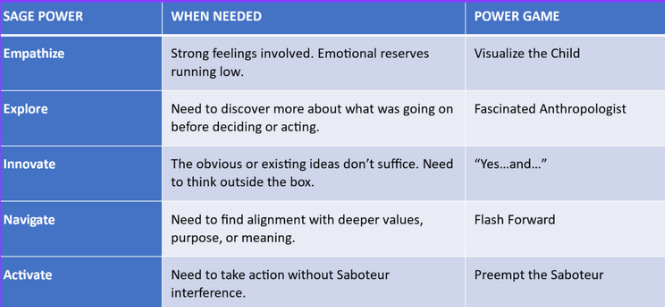(This article was originally published in July 2024 in the FEAP Newsletter)
The Positive Intelligence® (PQ) model is based on breakthrough research described in the New York Times bestselling book by Shirzad Chamine, a preeminent C-suite advisor. We all know about IQ, but did you know that your PQ reflects the percentage of time your mind is serving you-- as opposed to sabotaging you—and determines how much of your potential you actually achieve?
How We Self-Sabotage
According to Chamine,” Saboteurs are the voices in your head that generate negative emotions as you handle life’s everyday challenges. They represent the automatic patterns in your mind for how to think, feel, and respond. Your Saboteurs cause all of your stress, anxiety, self-doubt, frustration, restlessness, and unhappiness. They sabotage your performance, wellbeing, and relationships.”
Positive Intelligence identifies ten saboteurs. The first is the Judge where we judge ourselves internally, judge others externally, or judge situations. All of us have this saboteur. There are nine other saboteurs that you can take the free Saboteur Assessment to figure out which are the top saboteurs for you.
How Does It Help to Know This?
Our saboteurs are operating on the sub-conscious level, so we are often unaware of what they are doing. Their intention is to protect us, but the outcome is often very different. For example, if you are a pleaser, you are working to make others happy often neglecting your own needs. Conflict with others can create great stress. A pleaser may make decisions to prevent conflict versus dealing with an issue directly and can become resentful of not getting their own needs met. A person who has an avoider saboteur at a higher level will try to avoid difficult and unpleasant tasks. The person may procrastinate on tasks at home or work they deem hard or not enjoyable leading to potential problems. They may also not do self-care or exercise having health consequences.
What Can You Do?
The process of identifying the saboteurs and how they show up is very helpful. The next step is to do a PQ rep that Chamine defines as:
A PQ Rep is a 10-second hyper-focus on one of your senses.
PQ Reps boost your Self-Command muscle the same way that dumbbell reps would boost your physical body.
Doing PQ Reps is a foundational practice for building your Mental Fitness.
Here are examples of PQ reps:
Visual – Look at an item or picture in detail noticing the hues, shapes, intricate details that make up the image.
Breath – Take 3 long deep breaths with the out breath being longer than the in breath.
Touch – Rub your thumb and pointer finger together at the tips noticing how that feels, the ridges.
Sound – What is the furthest sound you hear (outside of the room, like a lawn mower, people talking); the next closes (in the room, perhaps the AC blowing or computer humming); finally, the closest noise (often our breath).
What are SAGE SKILLS?
Doing the PQ rep allows us to move from the triggered part of the brain where the saboteurs thrive over to the wise part of our brain where we can connect to our Sage Skills.
We can empathize by visualizing either yourself (if you are being harsh/judgmental to yourself) or someone else as a child. We can be curious and act like a fascinated anthropologist. When we need to be creative, we can use “yes…and…” We can think of ourselves as a year outside of the situation looking back and how we wished we had handled it. Saboteurs are activated by stress and change, if we know this is going to happening, we can put ourselves in their shoes and think about how they may act to interfere to plan ahead and circumvent the saboteur.
Reach out for Support
Hopefully, this peaks your interest in the topic of Positive Intelligence and you can watch this recorded webinar on Positive Intelligence to learn more. Four EAP Consultants have training on Positive Intelligence: Mary Sherman, LCSW, CEAP; Monica Maughlin, LPC, CEAP; Anna Delong, LCSW, CEAP, and LaBarron Burwell, MSA, CWP. Reach out to FEAP for an appointment if you would like to learn more about positive intelligence.
About the Author
Mary Sharman
A member of the FEAP team since 1996, Mary Sherman is a Licensed Clinical Social Worker and Certified Employee Assistance Professional in Virginia.
Mary offers expertise in coaching, stress management, and more, helping individuals navigate diverse personal and workplace challenges.




